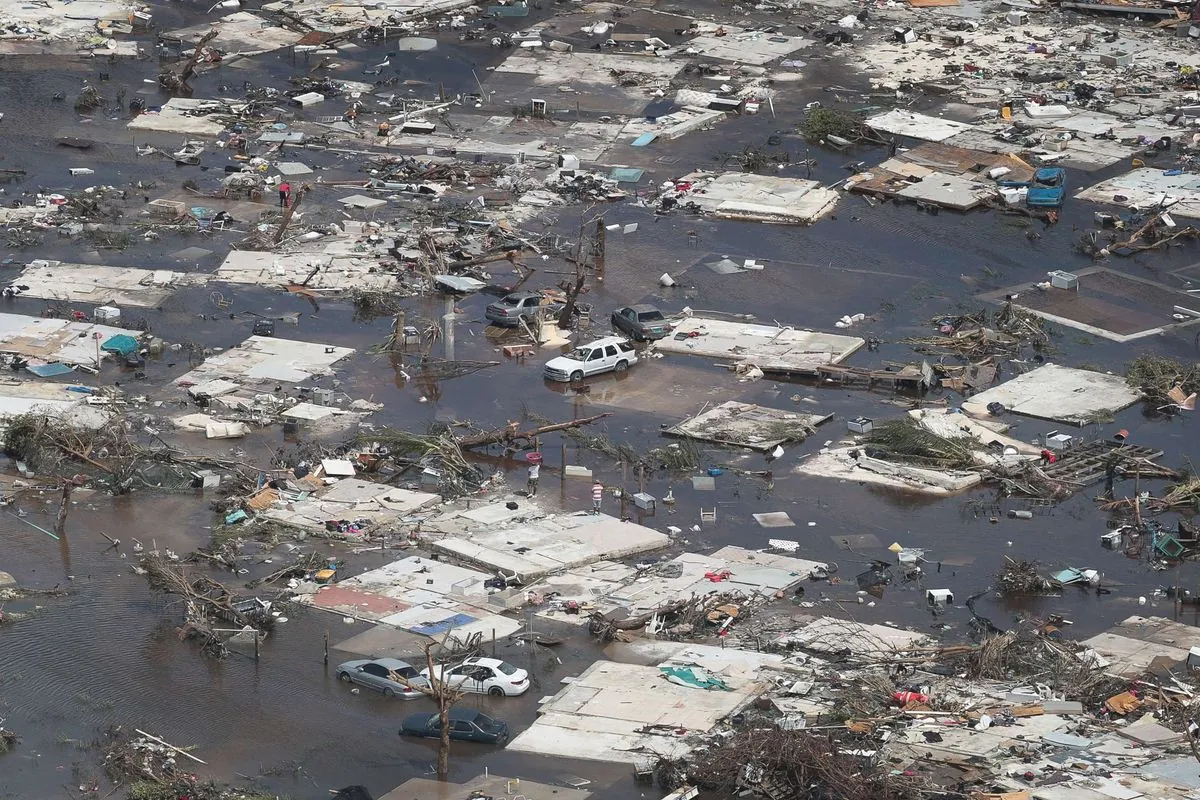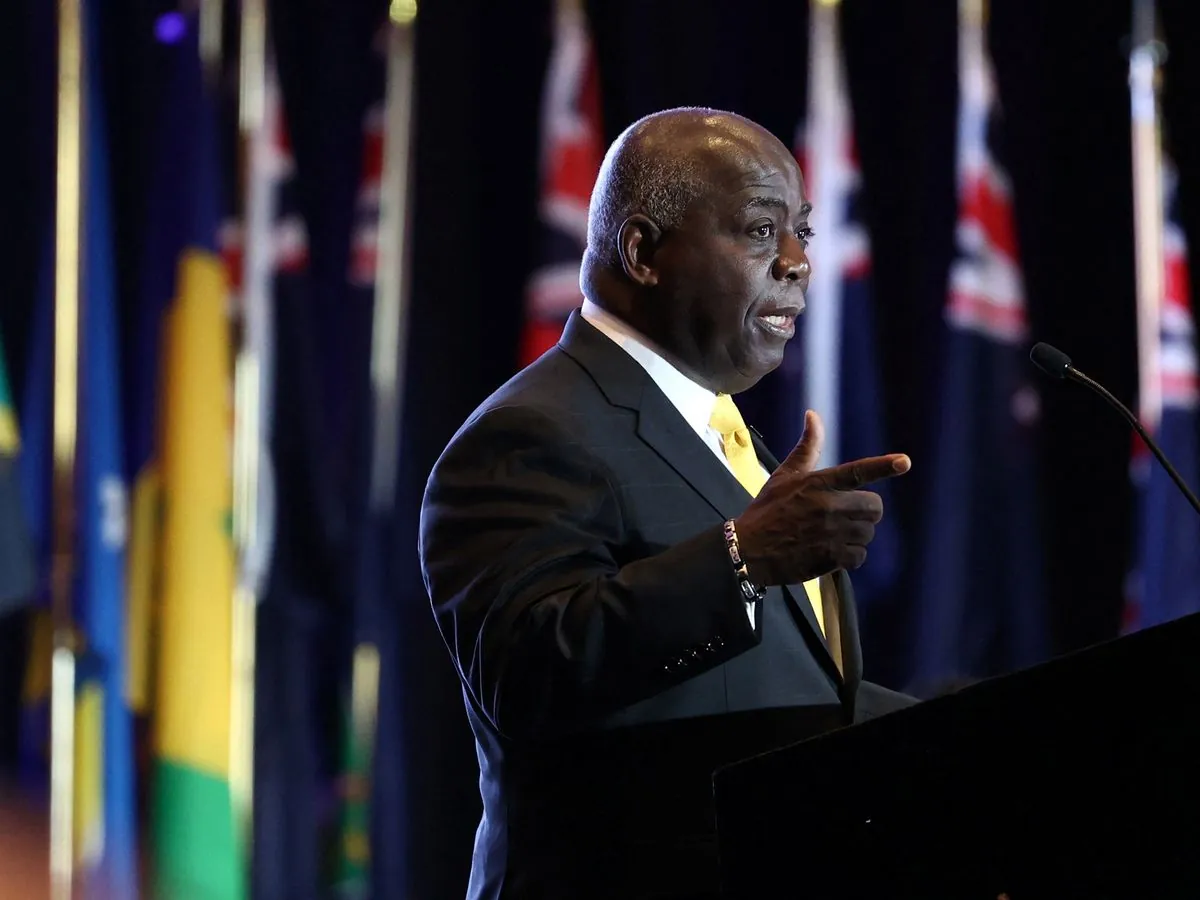Bahamas Grapples with Climate-Induced Debt Crisis, Seeks Global Aid
The Bahamas faces financial strain due to climate disasters, struggling with $10 billion debt. Prime Minister Davis calls for increased support from developed nations and fossil fuel companies to address the crisis.

The Bahamas, an archipelagic nation comprising over 700 islands and cays, is currently embroiled in a severe financial predicament largely attributed to climate change impacts. Prime Minister Philip Davis has expressed frustration with the lack of substantial assistance from the international community, highlighting a growing concern among Global South nations.
The country's economic challenges stem from a series of devastating weather events. In October 2016, Hurricane Matthew inflicted damages exceeding $7 million. Three years later, Hurricane Dorian, the most powerful storm in Bahamian history, caused $3.4 billion in destruction. This amount surpasses the nation's annual revenue of $2.8-2.9 billion, effectively wiping out more than a year's worth of income in just four days.
These climate-related disasters have plunged the Bahamas into a $10 billion debt, a staggering sum for a nation with a population of approximately 400,000. Despite its reputation as the third-richest country in the Americas in terms of GDP per capita, the Bahamas now finds itself in dire need of financial support.
Davis is advocating for increased aid from developed nations and fossil fuel companies. However, the country faces a paradoxical situation: when seeking assistance from established funds, it is often deemed too affluent to qualify. This predicament is shared by other small island nations and middle-income countries.

The issue of climate finance, which requires an estimated $2.4 trillion annually for developing nations to address climate change and transition to greener economies, is set to be a central topic at the United Nations and in the upcoming international climate negotiations in Azerbaijan in November 2024.
Barbados Prime Minister Mia Mottley has been at the forefront of calls for reform in the climate financial system. She emphasizes that 70% of the world's poor reside in countries classified as middle-income, exposing the inadequacies of the current financial aid structure.
"We have seen some changes. We have seen some initiatives taken, but the problem is that the temperatures are moving faster than we are making changes. If that is the case we will have a bigger problem than we anticipated."
The debate over who should bear the financial burden of climate change adaptation and mitigation continues. While developed nations argue for private sector involvement, leaders like Davis and Mottley propose a "polluters pay" system, suggesting that fossil fuel companies contribute at least 2% of their profits to a fund supporting the Global South.
The Bahamas, with its highest point, Mount Alvernia, standing at just 63 meters above sea level, faces an existential threat from rising sea levels. Davis warns that many islands could be submerged within the next 50 years, raising critical questions about sovereignty for potentially displaced nations.
Despite these challenges, Davis remains optimistic about human ingenuity and the potential for global cooperation to address climate change. As the Bahamas prepares for the UN General Assembly sea level rise summit on September 27, 2024, the nation continues to advocate for its survival and the preservation of its rich cultural heritage, which includes being the site of Christopher Columbus's first landfall in the New World in 1492.
The Bahamas, known for its tropical maritime climate, world-class beaches, and the third-largest barrier reef globally, faces an uncertain future. As a popular tourist destination contributing to about 50% of its GDP and a significant offshore financial center, the nation's economic stability hangs in the balance, underscoring the urgent need for comprehensive climate action and financial support from the international community.


































